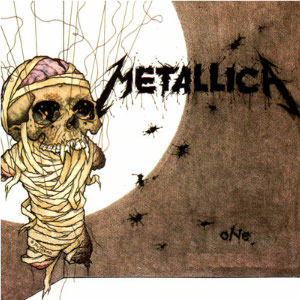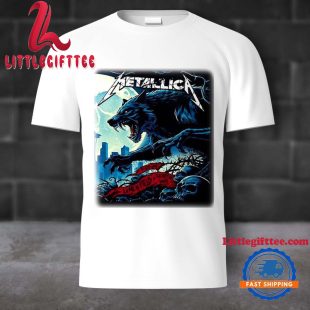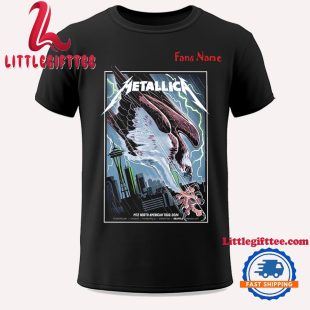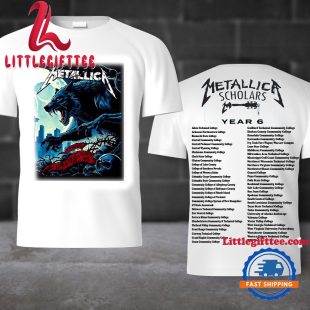Music
Unpacking Metallica What Genre is Metallica?
Metallica, a name that resonates with the very soul of rock and heavy metal, stands as an indomitable force in music history. The band’s evolution over the decades has created a rich tapestry of sound that defies simple categorization. When delving into the question of what genre is Metallica, one finds more than just a label; it’s an exploration of musical evolution, cultural impact, and personal connection. From their origins in the early 1980s to their wide-reaching influence today, Metallica’s journey reveals a complex interplay of various styles and subgenres, making their classification a fascinating topic of discussion.
In this article, we will explore Metallica’s genre identity through multiple lenses, including their historical roots, the intricacies of their musical style, the perceptions of fans and critics, and their lasting legacy in the world of music. Each section will delve deeper into these aspects, providing a comprehensive view of how Metallica has shaped and been shaped by the heavy metal genre.
The Heavy Metal Foundation

At its essence, Metallica is firmly anchored within the heavy metal genre. Their emergence from Los Angeles in 1981 marked the inception of a new era for heavy music that would resonate throughout the years.
Heavy metal is characterized by its loud and aggressive sound, marked by powerful guitar riffs, driving rhythms, and often dark or rebellious lyrical themes.
Originating in Los Angeles
Los Angeles, a city synonymous with music culture, provided fertile ground for Metallica’s formation. Here, a blend of punk rock and hard rock influenced the band’s early sound, allowing them to carve out a niche that would eventually lead to the birth of thrash metal.
During the early 80s, the L.A. music scene was vibrant, with bands like Motörhead and Iron Maiden paving the way for heavier sounds. Metallica absorbed these influences while adding their unique twist, resulting in a formidable combination of speed and aggression. This foundation laid the groundwork for the band’s signature style, characterized by lightning-fast tempos and intricate guitar solos.
Pioneering Thrash Metal
As Metallica honed their craft, they quickly became frontrunners of the thrash metal subgenre, which is defined by its fast-paced drumming, aggressive guitar riffs, and complex arrangements. Albums such as Kill ‘Em All and Ride the Lightning are quintessential examples of this style, showcasing the band’s raw energy and technical prowess.
Thrash metal is often seen as a reaction against the mainstream elements of heavy metal that had become prevalent in the late 70s. Metallica, along with fellow pioneers like Slayer and Megadeth, challenged the status quo by pushing boundaries with their speed and intensity. As a result, they not only defined a subgenre but also shaped the future of heavy music.
Defining Characteristics of Their Sound
The defining characteristics of Metallica’s sound lie in their ability to combine different elements seamlessly. At the core, there exists a heavy reliance on distorted guitar tones and rapid drumming, complemented by James Hetfield’s powerful vocals and emotionally charged lyrics.
Lyrically, Metallica often explores themes of inner turmoil, existentialism, and social commentary. Songs like “Master of Puppets” and “One” delve into darker narratives, pulling listeners into a visceral experience. These multidimensional layers of sound and content contribute to the band’s lasting appeal, drawing in fans from diverse backgrounds and musical preferences.
Subgenre Exploration

While Metallica is primarily recognized as a heavy metal band, their discography paints a nuanced picture filled with experimentation across various subgenres. This blending of styles invites discussions about definitions and classifications within the broader musical landscape.
Thrash Metal: A Hallmark of Identity
Thrash metal represents a significant part of Metallica’s identity, serving as the cornerstone of their early work. With frenetic guitar work and relentless drumming, the band cultivated a sound that resonated deeply within the metal community.
Albums like Master of Puppets encapsulate the quintessence of thrash metal. The profound complexity and emotional depth in tracks such as “Disposable Heroes” and “Sanitarium” showcase the band’s technical skill, propelling them to prominence within the genre.
As time progressed, the band’s thrash roots evolved, leading to a more polished and accessible sound without sacrificing their core identity. This transition sparked debates among fans regarding the authenticity of their thrash roots and the implications of commercial success.
Speed Metal: An Evolving Aspect
Speed metal, often considered a subgenre of heavy metal, emerged in the same era as thrash but bears distinct traits. Notably, speed metal emphasizes faster tempos and melodic elements fused with heavy instrumentation.
Metallica’s incorporation of speed metal can be heard in tracks like “Battery” from Master of Puppets. This song exemplifies the band’s ability to meld catchy melodies with blistering speed, appealing to a broad spectrum of listeners.
However, embracing speed metal raises questions about genre purity. While some fans laud Metallica’s exploration of this style, others argue it strays too far from their thrash roots. This ongoing discourse reflects the dynamic nature of musical genres, where labels often fall short of encompassing an artist’s evolution.
Hard Rock Influences: A Commercial Venture
With albums such as Load and Reload, Metallica ventured into hard rock territory—an endeavor that stirred both excitement and controversy among fans. These records display a shift in tone, exploring new sounds and collaborating with varied influences.
Critics have debated whether this evolution signals a departure from the band’s heavy metal foundations. Some view it as a strategic move towards commercial appeal, while others appreciate the boldness of branching out creatively.
Tracks like “Until It Sleeps” showcase a more melodious approach while retaining elements of heavy metal. This duality highlights the complexities of genre classification and the challenges artists face when navigating their identities in an ever-evolving musical landscape.
Fan Perspectives and Cultural Impact

The classification of Metallica extends beyond mere genre labels; it engages fans and critics alike in a conversation about the essence of music itself. Discussions surrounding what genre is Metallica reveal the fluidity of musical definitions and the subjective nature of personal experience.
Diverse Interpretations Among Fans
Fan communities play a crucial role in shaping perceptions of Metallica’s genre classification. Platforms like Reddit serve as spaces for passionate discussions where enthusiasts share personal interpretations of the band’s music and categorize their albums.
Some fans argue that albums like Load lean more towards hard rock, while others vehemently defend them as still being rooted in heavy metal. These differing opinions illustrate the subjective nature of music appreciation and how individual experiences shape perceptions.
Moreover, fans often connect emotionally with specific songs or albums, creating a personal narrative intertwined with the music. This emotional investment complicates the exercise of categorizing Metallica’s oeuvre, challenging traditional definitions of genre.
Cultural Influence Beyond Music
Metallica’s influence transcends musical boundaries, impacting cultural perceptions of heavy metal as a genre. Their extensive reach has altered how metal is perceived socially, drawing in diverse audiences who may not typically engage with heavy music.
As one of the best-selling bands globally, their success has prompted conversations about what defines metal. Classics like “Enter Sandman” and “Nothing Else Matters” have crossed over into mainstream consciousness, blurring lines between classic rock and heavy metal.
Their legacy fuels ongoing dialogue about subcultures, artistry, and the evolving nature of music. Metallica’s ability to attract wide-ranging audiences highlights the power of art to transcend boundaries, inviting new generations to explore the depths of heavy metal.
Challenging Traditional Categorizations
Metallica serves as a case study in the fluidity of musical genres. Their willingness to evolve and experiment invites audiences to consider broader definitions of what a metal band can be.
By traversing multiple styles while remaining anchored in heavy metal, Metallica challenges traditional categorizations, prompting us to rethink our preconceived notions. They embody the notion that music is an ever-changing phenomenon, ultimately reflecting the collective experiences and tastes of listeners.
The Legacy of Metallica

Ultimately, Metallica’s journey encapsulates the evolution of musical genres themselves. Their ability to traverse a multitude of styles while remaining true to their heavy metal roots presents a compelling narrative about the nature of music and its capacity for change.
A Definition in Motion
Defining Metallica solely as a heavy metal band overlooks the intricacies of their artistic journey. They’ve continually redefined themselves, embracing new influences while solidifying their place in metal history.
Their contributions to the genre, particularly in shaping thrash metal, demonstrate a commitment to innovation. By integrating elements from other styles, they have crafted a sound uniquely their own, influencing countless artists across genres.
This constant evolution embodies the idea of genres as living entities—shaped by the artists and their audiences. Metallica’s legacy inspires future generations to explore the intersections of various musical forms, fostering a dialogue that transcends labels.
Inspiring Future Generations
The impact of Metallica reaches far beyond their discography. They have inspired aspiring musicians to experiment boldly, challenge conventions, and create authentic expressions of their artistry.
Bands across genres cite Metallica as a significant influence, acknowledging their role in shaping modern heavy music. Their willingness to push boundaries encourages artists to embrace a sense of freedom, exploring sounds that may initially seem at odds with established norms.
This ripple effect fosters a culture of creativity, empowering musicians to discover their unique voices amidst the ever-evolving landscape of music. Metallica’s influence serves as a testament to the enduring power of art to inspire change and challenge perspectives.
The Ongoing Dialogue
In conclusion, the question of what genre is Metallica transcends simple categorization. Their journey encompasses an intricate web of influences, styles, and personal connections that invite listeners to reflect on their relationships with music.
As we navigate the complexities of identifying genres in an ever-changing musical landscape, Metallica stands as a beacon of innovation and adaptability. Their legacy challenges us to embrace the fluidity of genres, inviting ongoing conversations about the nature of music, artistry, and identity.

Metallica represents a poignant chapter in the narrative of heavy metal and music as a whole. Their evolution reflects the dynamic interplay of influences that shape an artist’s journey, revealing the intricate layers that contribute to their identity.
As we ponder the question of what genre is Metallica, we uncover a multifaceted story that goes beyond labels—it speaks to the power of music to transcend boundaries and foster connections among diverse audiences. Metallica’s legacy encourages us to celebrate the richness of musical expression, inviting all to partake in the ongoing dialogue about what it truly means to be a metal band in the modern world.




















